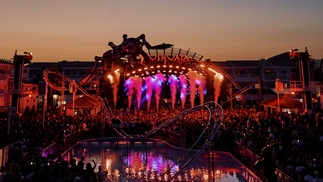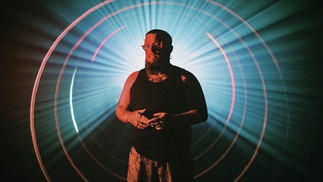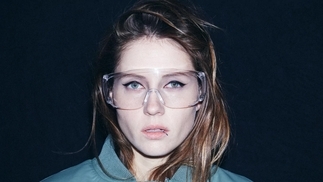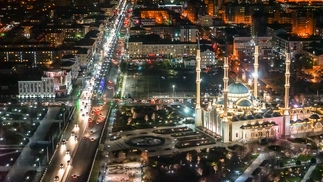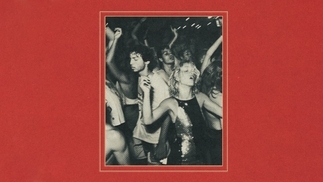Step inside Giorgia Angiuli's weird and wonderful live show
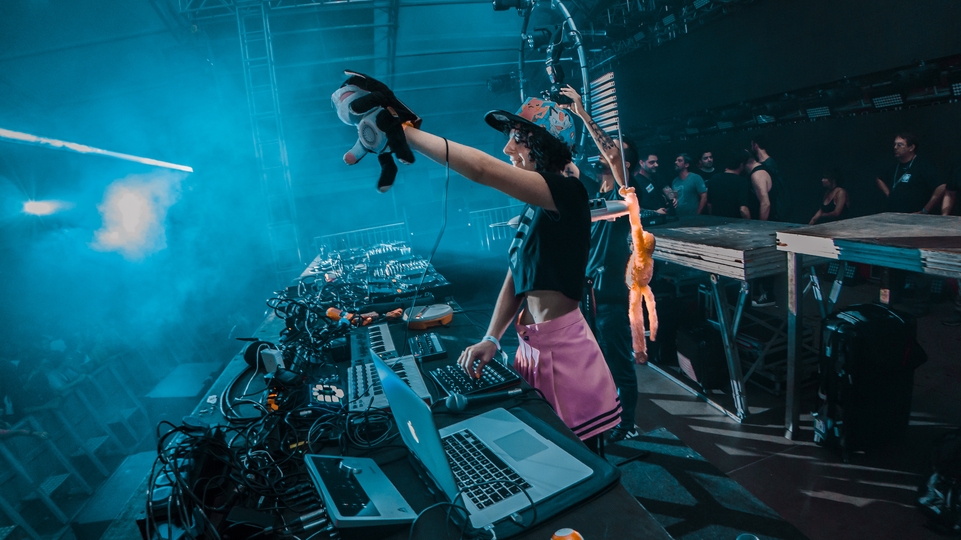
Giorgia Angiuli is one of the most distinctive performers in electronic music, coupling quirky toys and powerful synths with her own voice and dynamic performance. We spoke to her about how the show evolved, the realities behind performing live in the club, and the Es Vedra performance...
Why did you put together a live show instead of DJing?
"I've never played as a DJ. I had a classical education, I studied guitar and I grew up in a family of musicians, then I started to play in different bands, different genres: nu metal, indie, electronic, folk — I like many kinds of music and I started to play melodic techno music just four years ago. I have always been fascinated by music composition and I like to play different instruments, so for these reasons the live set is the perfect way to express myself.”
How did your set-up start and how has it evolved?
“I like to change my set-up often — I love to use different equipment. Since the beginning I’ve used Ableton Live, and the other instruments changed. A few years ago I used to play with my guitar and I’ve always used my voice more as a musical instrument, singing only a few parts. Then I added different MIDI controllers, synths and toys for kids.
“Travelling a lot, I always consider the problem of the weight of my luggage — that’s why I need to look for cool, reliable and small gear. Now I’m playing with Apogee soundcard, Ableton Live, an SM58 microphone, Arturia Minilab mk2, Novation Launchkey, Moog Sub37, Yamaha CS01, TC Helicon Voice Live and a few other bits and pieces.”
How does your live show work now? What are the main bits of kit?
“During my live set I never play the tracks that I release using the same arrangements, I prefer to play them with different arrangements, keeping only a few elements from the original version. I pre-record basslines, kicks and main grooves in my studio and I add some parts live with the other instruments. I loop some groove elements live — ride, percussions, snare — on top of my voice, the synths and the toys.”
You incorporate vocals into your sets — why is it important to you to keep things organic and keep the human element in the music?
“Yes, I love the human touch, but I use my voice as a musical instrument, with effects and singing only in small parts [of the live show]. Also, I’m not a big fan of quantisation and I work on the live set in a very different way compared to how I produce my tracks. I like to add dirty elements to my live set and I really don’t care about the perfect mix, because it’s live. But, on the other hand, when I produce a track I take care of all the details and I prefer to keep the composition more clean and organic.”
"I like to add dirty elements to my live set and I really don’t care about the perfect mix, because it’s live"
What are the main challenges of playing live in a club?
“Unfortunately live sets are still rare in the clubs — too often the space on stage is really small, because the clubs are designed for DJs. You can find sound technicians that don’t read carefully the technical riders. But I still love to perform live in the clubs, the reaction of the crowd is immediate — if they dance or they close their eyes it means that they are appreciating your show, and I love when this magic connection between me and the crowd happens.”
You performed live at Es Vedra with Cercle. How was that experience?
“It was my first time at Es Vedra and, to be honest, when I arrived there I felt a bit scared because I suffer from vertigo. Then I started to play and I felt at one with the blue of the sea, the power of nature was really strong. I think it could be amazing to organise more events in these kinds of locations: the energy is so strong. It was a unique experience, and I have to say a big thanks to the channel Cercle for inviting me there, they are doing an awesome job.”
What advice would you give to someone who was thinking of starting a live electronic music show?
“I think the most important thing if one wants to start this career is to study a little bit of music theory, in order to be able to improvise during the set, and to practice many hours a day. This will allow you to express a human touch in the show, not only using machines or a laptop. There are also difficulties, for example travelling around the world with heavy equipment and luggage, and the sound-check will be an essential step. Also, packing your equipment after the performance will take a long time but hey, at the end you will get huge satisfaction and emotion from playing your own music in front of the crowd!”
*Catch Giorgia playing alongside Maceo Plex, Mind Against and Popof for Pyramid at Amnesia on 20th of August.
